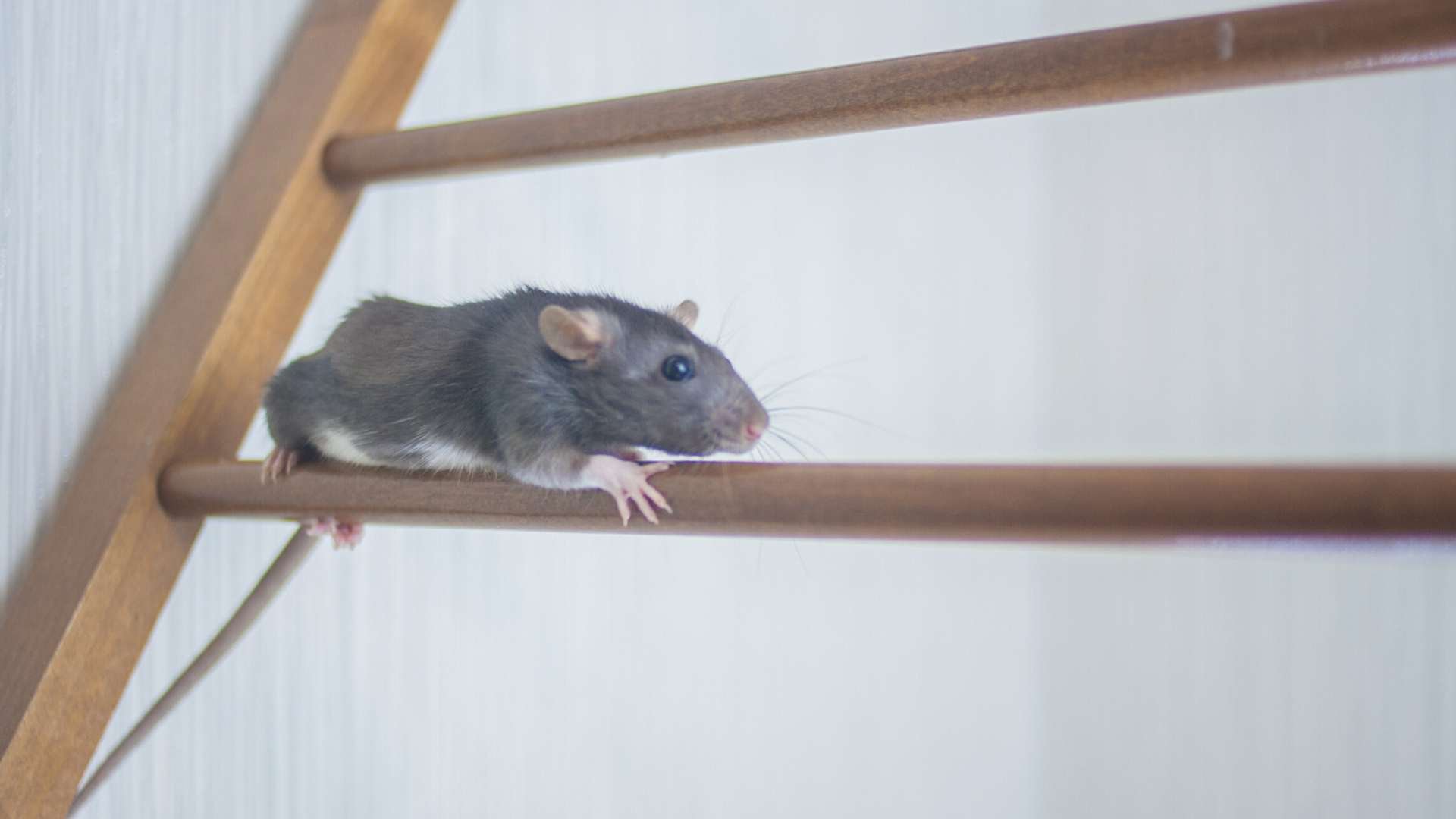Keeping rats off your property is a struggle many people face, especially when unsure of where the root of the problem is.
Several ways are available in the market today to help you control the rat problem, from trapping to poisoning, but sometimes it is not as effective as you might have hoped.
To get to the root of the matter, you need at least a good amount of basic knowledge about how rats operate. This will then help you decide on the best method to get rid of rats in your home.
Getting the right knowledge begins by asking the right questions, such as, what can rats climb?
By the end of this guide, you will better understand the surfaces that rats can climb, which will help you control rat invasions.
What Can Rats Climb?

Rats are excellent climbers, especially when the surface is rough enough to help them stably dig their feet. As long as they have a reason to believe that what they are looking for is somewhere at the top, they will look for all the possible ways to get there, the primary method being climbing.
You should, therefore, never assume that you can keep rats away from the roof or your attic. These are the areas where you might find them in plenty since they are hidden from constant supervision.
However, just because there is a surface to a rat’s destination does not mean the rat will easily get there. Some surfaces do not simply work for them.
Can Rats Climb Walls?
Yes – rats can climb walls!
Whether a rat can climb a wall is entirely based on the nature of the wall’s surface. The rat has amazing physical abilities to allow it to climb upright. The positioning of the wall is not really in question here, but its surface.
As long as the wall is somehow rough, a rat will find excellent grips to make it to the top.
Walls made of bricks, wood, and gypsum are rough enough for a rat to find adequate grips for climbing vertically. The rough bricks and gypsum surfaces offer gripping spaces for a rat’s small feet. Take a look at this video that shows a rat climbing a wall.
Concrete, however, will not be as easy for a rat, given that most finishes are done smoothly.
However, if the finishing is done with artistic features that make it rough, then a rat will be flexible enough to find a way on the wall to the top.
Can rats climb walls… yes they can!
Can Rats Climb Metal?
Not all metal surfaces are smooth, and not all are wide enough for a rat to get to the other end.
Metals used to build window panes are thin and long. A rat will find a way to get a grip on the metal. The rat will also wrap its tail around it for support. This way, it can get to the top with awesome stability and fast.
If the distance between one metal rod and another is not wide, rats can always jump, making their way to the other side.
However, the rats’ ability is limited if the metallic structure is smooth, wide, and long.
Can Rats Climb Glass?
One of the surfaces that you can be sure that a rat will not find a way to maneuver is a glass surface.
This is because most glass surfaces are too smooth for a rat to find a place to hold on a grip.
However, the material that makes the edges or the panes might be your weakness.
Remember, just because a rat cannot climb a surface does not mean that it will not find other ways to get past its obstacles.
Can Rats Climb PVC?
Rats use PVC pipes to find their way into a home, especially drainage and sewage pipes. A rat’s claws and gnawing capabilities will allow them to.
Also, connectors between PVC pipes will offer great support to allow rats to find their way to their next destination.
A few years back, guards or pipes were used to keep rats off houses. These guards are not in circulation these days as much, but they will come in handy if you can find them.
Can Rats Climb Furniture?
Furniture is one of the easiest surfaces for a rat to climb. Most furniture pieces are made of wood, leather, or cotton. These materials have tiny airspaces to offer great climbing support.
To make matters worse, if a rat wants to hide, it will create holes on your furniture to find a hiding space.
Since furniture is one of the most vulnerable spaces for a rodent to invade, it is the best place to place rodent traps strategically.
Can Rats Climb Stairs?
Yes, rats can find their way past your staircase.
If they are not using the floor and jumping from one case to another, they will use arm support since most are made of wood. Some homes have stairs covered with woolen or woven carpets.
Such surfaces become quite easy for rats to make their way back and forth on your stairs.
Can Rats Climb Kitchen Cabinets?
Most kitchen cabinets are made of wood. Some may have smooth finishing, but if close enough, the door hinges still make room for rats to climb your kitchen cabinets.
Some cabinets have work underneath or behind the door for wiring and cables, encouraging a rat’s climbing ability.
Can Rats Climb Curtains?
Another easy way a rat can get from the floor to the roof or near the roof is through the curtains. Curtains are made of different materials. All fabrics have pores that make it easy for rats to catch a grip and find their way to the top.
If the wall is too smooth, a rat will find the nearest curtain to help it explore the greater heights of your house. As long as the curtain is reachable, a rat will use it and even find a great hiding position.
Conclusion
Can rats climb? Yes, they can! Rats can climb tons of items as long as the surface has enough of a rough surface for the rat to grip its claws into.
Rats come into your home to look for two main things; a nesting ground and food. Sadly, they are not neat! Rats do not care if you have other plans for the left-over meal or the cereal stored in your granary.
They will, therefore, look for every way to get to their target and their skills help them achieve their goal.
To control a rat invasion will go beyond you getting rid of surfaces that the rats can climb. Wiring and other connectors might also work against your efforts.
However, with more research and maintaining a neat environment, you might have better chances of getting rid of rats in your home.
By sealing up any rat entry points on your property, you are vastly reducing the risk of a rat invasion. That way, you don’t have to worry about a rat climbing any object in your house.
Good luck!








